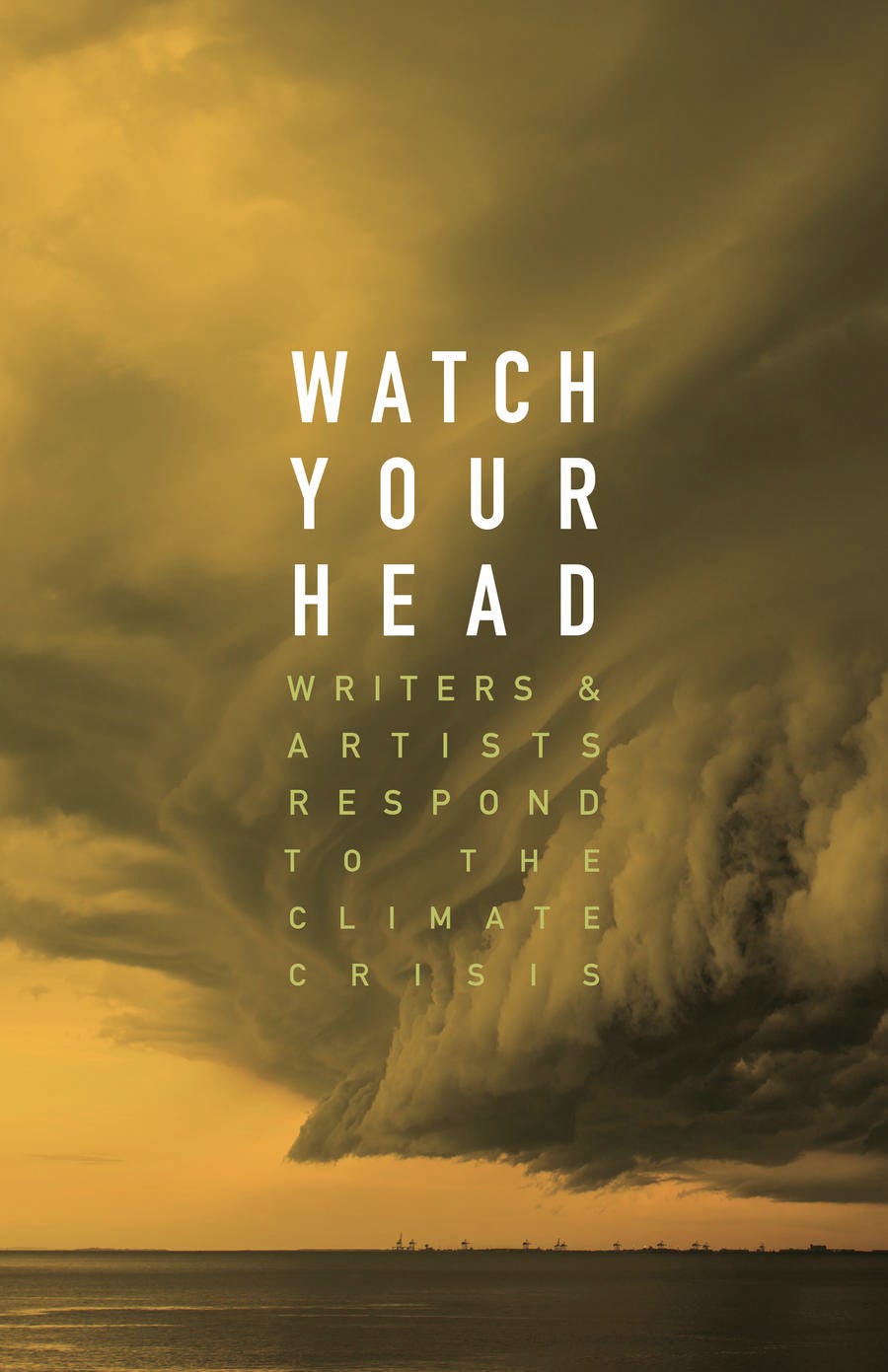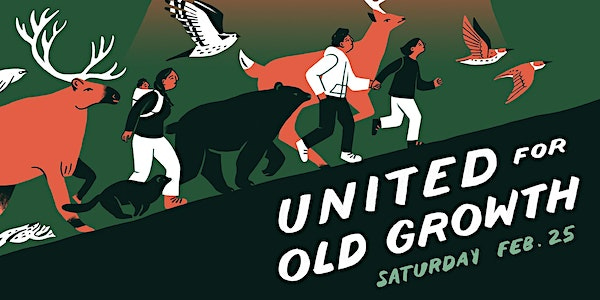March 2023 Dispatch
with poetry by Anne Walk, Jennifer Bowering Delisle, and Richard-Yves Sitoski
Hi Watch Your Head Readers,
After a hiatus, we’re back with new poetry, the Watch Your Head Round Up, Event Listings, Recommended Reading, and more!
This month, we have poems from Anne Walk, Jennifer Bowering Delisle, and Richard-Yves Sitoski, and our website has been redesigned.
Let us know in the comments what you’ve been up to climate writing or art-wise.
Kathryn
Watch Your Head, Publisher
Watch Your Head February 2023
Anne Walk
and on the other side
of the world the
dolphins swam in
canals
from “She Cleared her Throat”
Jennifer Bowering Delisle
… Everyone knows
the Arctic ice is tinkling in the bottom of an empty glass.
from “Hall Light” and “Go Green”
Richard-Yves Sitoski
Snowfall is all the beauty I permit myself.
It is light and shows no regret though it’s 130 days
till the start of summer, when there will be monarchs
from “Here”
From the Archive
Shazia Hafiz Ramji
We have been here before
where Duracell bodies
of two beached whales melt
into the wefted tongues
from “Beached Poem”
Watch Your Head Round Up
SDG Week Canada at UBC - March 6-10, 2023 (Virtual Events)
SDG Week Canada is a national collaboration from March 6-10 featuring workshops, panels, and other interactive programming to increase awareness of and engagement with the 17 Sustainable Development Goals (SDGs). Check out what's happening at UBC!
Neil Young joins massive rally for old growth forests in B.C. capital
In the capital, demonstrators gathered at Centennial Square and marched down Douglas Street to the legislature building, where they listened to speakers and took in a surprise musical performance by Neil Young.
How do your digital habits affect the environment? by Laura Marks, The Walrus
WHEN IT COMES TO our growing carbon footprint, it’s easy to blame cars, agriculture, or factories. But what about the internet? Since the start of COVID-19, screen time has, by some estimates, increased between 60 and 80 percent for most adults,1 and it turns out that there’s a lesser-known impact of all those extra hours spent watching Netflix. To learn how our digital habits affect the environment, we turned to Laura Marks, a professor at Simon Fraser University who researches the environmental impact of streaming.
Madhur Anand’s poetry is informed by her scientific knowledge – and she wouldn’t have it any other way by Steven W. Beattie, Quill and Quire
Anand, trained in complex systems theory, places great importance on her background as a scientist. “Inherent in my identity is the language of science and the culture of science,” Anand says. “I don’t try to turn off the science [when writing poetry]. I don’t try to ignore what I know – which is a challenge at times.”
Rewriting the Future of Our Planet by Tom Cull
Check out this talk from writer and activist Tom Cull, Western Arts & Humanities
Artists must confront the climate crisis – we must write as if these are the last days by Ben Okri, The Guardian
Albert Camus, writing during the second world war, felt the need for a new philosophy to answer the extreme truths of the times. The absurd was born from that. Existentialism was born too from a world in the throes of extreme crisis. But here we are on the edges of the biggest crisis that has ever faced us. We need a new philosophy for these times, for this near-terminal moment in the history of the human.
It is out of this I want to propose an existential creativity. How do I define it? It is the creativity wherein nothing should be wasted. As a writer, it means everything I write should be directed to the immediate end of drawing attention to the dire position we are in as a species. It means that the writing must have no frills. It should speak only truth. In it, the truth must be also beauty. It calls for the highest economy. It means that everything I do must have a singular purpose.
It also means that I must write now as if these are the last things I will write, that any of us will write. If you knew you were at the last days of the human story, what would you write? How would you write? What would your aesthetics be? Would you use more words than necessary? What form would poetry truly take? And what would happen to humour? Would we be able to laugh, with the sense of the last days on us?
Energy Dead-Ends: Green Lies, Climate Change and Chaotic Transitions, Andrew Nikiforuk, The Tyee
As an author, journalist and contributing editor for The Tyee, Andrew Nikiforuk has written about the use—and abuse—of natural resources and wild landscapes in Canada for more than 30 years. The University of Victoria Department of Writing is proud to have him as their latest Harvey S. Southam Lecturer. This event is co-presented by The Tyee and University of Victoria.
“Blazing Space” by Stephen Collis, The Scales Project
Where there’s fire
there’s water too
hillsides burnt in summer
slump in inundated winter
Calls for Submissions
The Scales Project
The Scales Project is a multi-genre climate-focused site founded by Bethany Gibson that publishes conversations in art about ecological collapse and our place in the changing world. Each posted work begins or adds to an already existing conversation on the site.
Check out the submission guidelines if you are interested in participating.
Connect
Twitter | Instagram | Archive | Subscribe | WYH (print anthology) | Website





